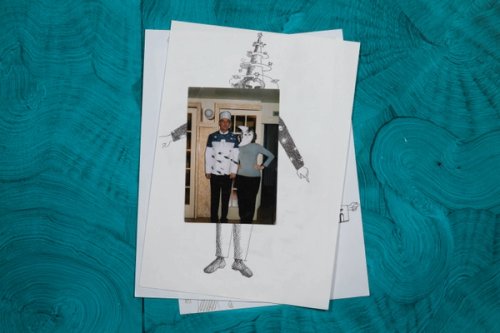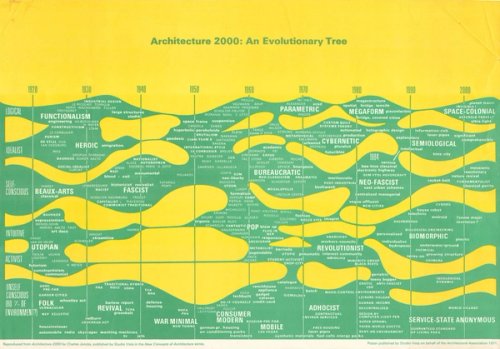A new site-specific commission by Turner Prize-winning artist Tai Shani responds to the unique context of The Cosmic House and traces the connections between the artist’s thinking and that of Charles Jencks, touching on anthropomorphism, Ad-Hocism, surrealism and the Promethean impulse.
Shani’s work at The Cosmic House draws on the various mythologies that were metabolised in Mary Shelley’s Frankenstein; or, The Modern Prometheus. A surrealist exquisite corpse made real, Frankenstein’s Monster sits within Jencks’ definition of Ad-Hocism which, for him, meant the use of materials and objects for unintended purposes, with surreal results.
As a riposte to the abstract ‘language’ of Modern Architecture, The Cosmic House re-centred the human figure as its main subject; a theme that can be traced through its playful metaphors of architectural elements as body parts. In Jencks’ Cosmic House, doors with symmetrical handles are metaphors for the body, capitals, windows and facades become faces. A built manifesto of Post-Modernism, the house doubles up as a personal self-portrait of Jencks and his family.
While exploring the mimesis between the house and the body, Shani’s poetic intervention connects Ad-Hocism to artistic creation. The exhibition’s title directly quotes Shelley’s novel, and the four different hues of green read like an incantation that references the viridescent cinematic depictions of the Monster. Her installation transforms the lower-ground floor gallery space of the house and the ensemble of the sculptural elements, prints and paintings illustrate the miracle of synthetic life.
Shani’s newly commissioned multimedia installation is complemented by a poetic text by the artist (available in print in the gallery), that traces potential links between The Cosmic House and other historical and mythical houses that anthropomorphise architecture – such as the houses of Carlo Mollino, King Ludwig’s operatic castles, and Dali’s dream of Venus Pavillion. The visionary architecture of these buildings share a common character as they unfold around personal cosmologies of their own creators and turn into a series of architectural reproductions of the self.
The World to Me Was a Secret: Caesious, Zinnober, Celadon, and Virescent is scored by experimental pop composer felicita, and accompanied by a thematic publication, published in collaboration with Strange Attractor and released in autumn 2024.


